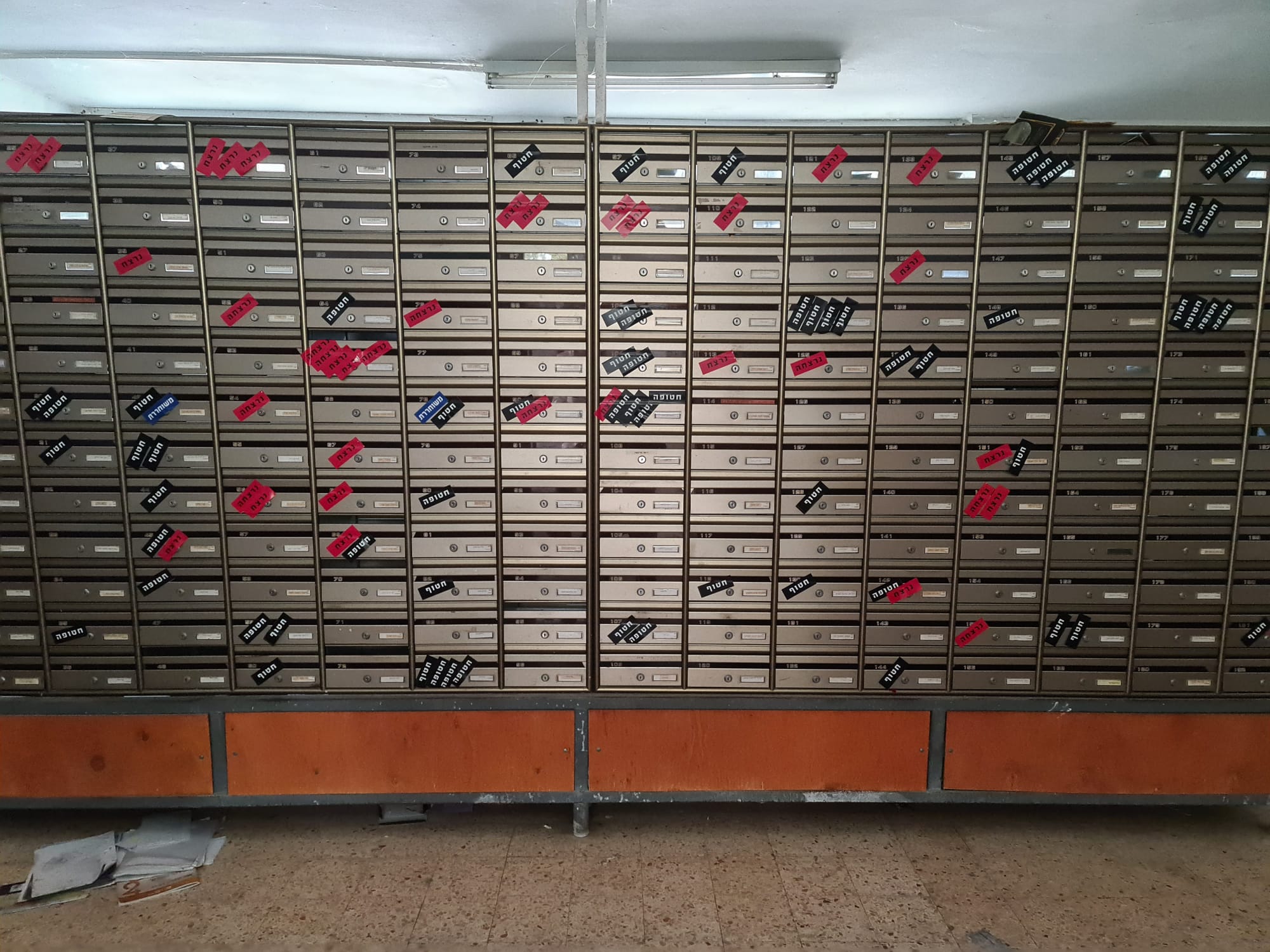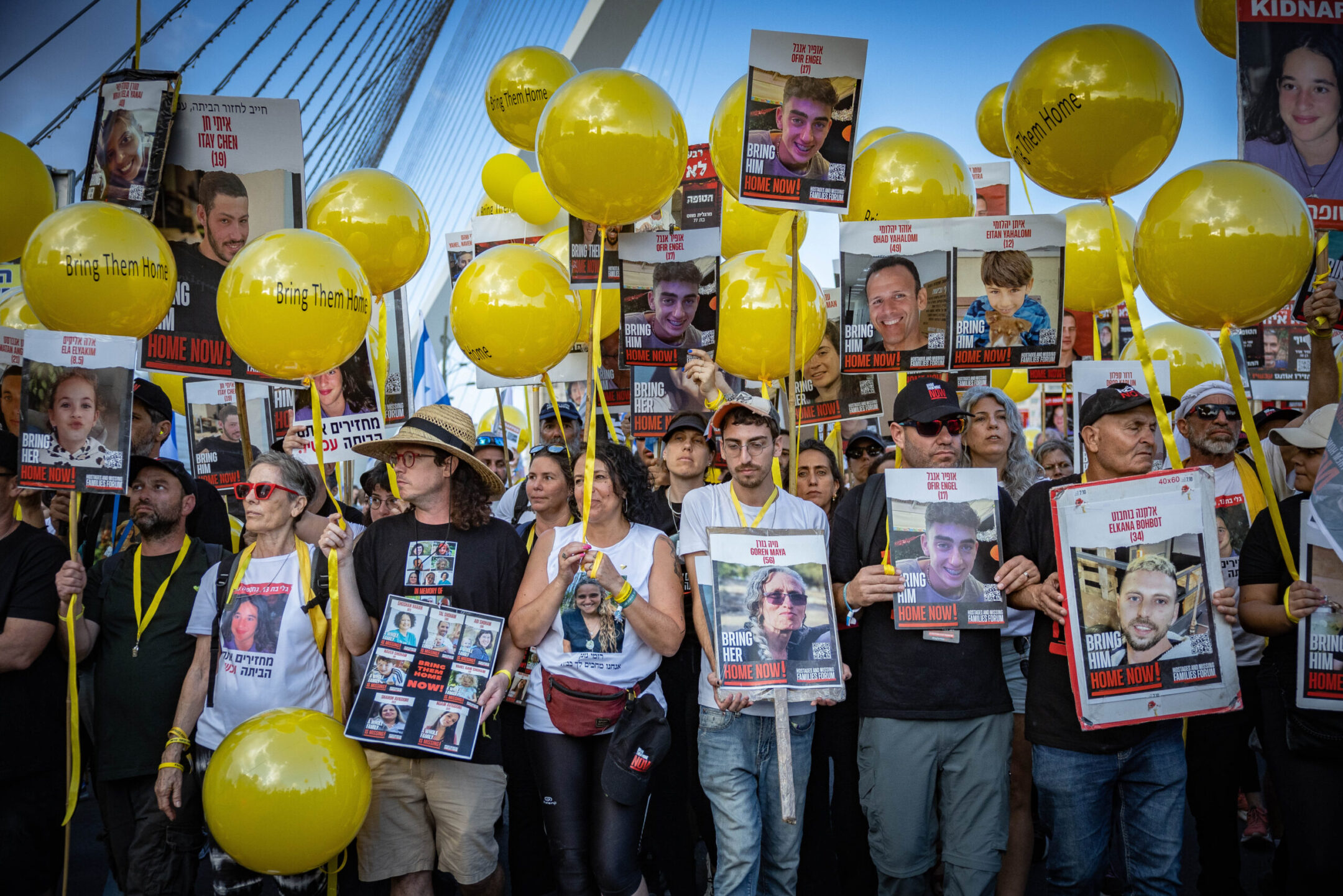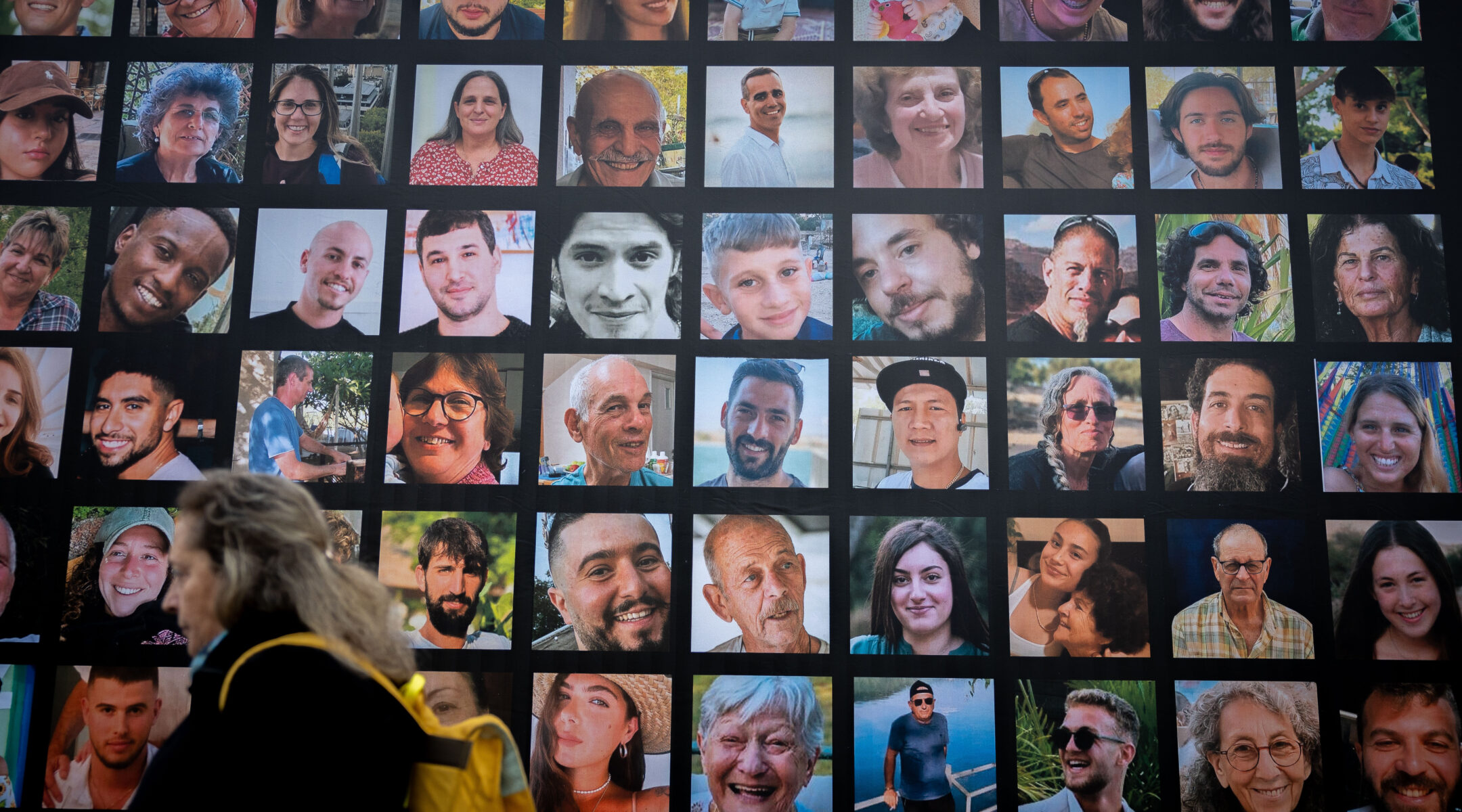KIBBUTZ NIR OZ, Israel (JTA) — Israel has begun making preparations for the care of traumatized hostages who are freed from Gaza, as the country reaches a pivotal moment in its six-week war with Hamas.
But confusion reigned late Wednesday about the timeline for the truce that would see the release of at least 50 hostages, including children, their mothers and the elderly. After Israeli officials suggested that some hostages would be released on Thursday, Israel’s national security council chair said the first release was not expected until at least Friday.
The tweaked timeline is shaking the delicate optimism that had set in for a country that has been consumed by grief and anxiety since Oct. 7, when Hamas attacked southern Israel, killing 1,200 and taking roughly 250 hostages.
Officials say they still expect the deal to be finalized, and top Israeli security officials are in Qatar to sign off on the agreement. Sources tell Israeli media that one source of the delay could be disagreements between Qatar and Hamas.
Some reports suggest that Israel has gotten a list of the first hostages expected to be released, though whether that was true was not clear. Either way, exactly who is on the list won’t be released publicly in advance, to help families manage their hope, officials said on Wednesday.
But U.S. President Joe Biden said he expected Abigail Mor Idan, a 3-year-old who was taken alone after her parents were murdered, to be in the first group. Her fourth birthday is Friday.
Soldiers who have been tasked with escorting the released hostages back into Israel were given detailed instructions by the Israel Defense Forces. The instructions, which circulated on social media, tell the soldiers to ask the children if they are hot or thirsty, to ask permission before hugging or lifting the children and to defer questions about where their family members are until later.
For the families of the hostages, the news that some could be released is complicated. The families have operated as a single lobbying force since shortly after Oct. 7. Now, if the release happens as anticipated, they will be divided into those whose hopes have been fulfilled and those who are still waiting.
Natali Madmon’s 77-year-old mother, Ofelia Roitman, was abducted from Kibbutz Nir Oz on Oct. 7, along with 15 of her neighbors. She was injured at the time and was taken without her epilepsy medication; now, she could well be among the 50 hostages expected to be released during the four days of the planned truce.
Madmon said she had thought about the order in which the hostages are released. “I’ll answer what my mother would say: She’d want the children out first, for sure,” she said. “I hope they won’t forget the elderly either, who are kind of in a second childhood.”
But she said she would not dismantle a display she had set up in Nir Oz’s dining hall, showing all of the kibbutz’s missing and dead as if they were seated at the tables, until everyone was accounted for.
“If they don’t give back the hostages the dining hall will remain like this forever,” Madmon said.

The mailboxes at Kibbutz Nir Oz are marked red for those who were murdered on Oct. 7, black for those taken hostage. (Deborah Danan)
Some in Israel oppose the hostage deal, saying that it rewards terror and incentivizes Hamas to take captives in the future. They also are concerned that a pause in fighting could allow Hamas to regroup and evade the IDF’s advances.
Madmon said she wasn’t worried that a truce could compromise Israel’s stated mission to destroy Hamas.
“They should give whatever needs to be given to make sure the hostages get home,” she said. “And only after they should deal with everything else. I have total confidence that our army will know what to do then.”
Renana Jacob’s two sons were taken hostage from Nir Oz. The last thing she heard her younger son, Yigal, say by phone was, “You can’t take me. I’m too young.” He turned 13 while in captivity, appearing at one point in a video shared by Hamas and Palestinian Islamic Jihad.
Jacob hasn’t seen the video. On Wednesday, she said, “I am very hopeful my sons will return soon — and hopeful that all hostages will be released in the near future.”
Benny Avigad’s brother was killed at Nir Oz. No one in his family was taken hostage, but he said the kibbutz was like a family.
“I want all the people to come back,” he said. “Here we know everyone, from the 9 months old to the 85 year old. It’s a small community. So we will be maybe a little happy for a moment, the children and the wives are coming back, but what about the rest?”
He added, “For us, the living, this is the most important thing. We will not continue thinking about coming back here until the situation is finished and all the kidnapped are back here.”

Families of the Israelis held kidnapped by Hamas terrorists in Gaza march along with hundreds of Israelis towards the prime minister’s office in Jerusalem, as part of a protest calling for the immediate release of the hostages, Nov. 18, 2023. (Yonatan Sindel/Flash90)
Their comments echo that of the group that has been fighting for the captives, spearheading a global effort to keep their names and faces in public view through “Kidnapped” posters, demonstrations and creative public displays.
“There is no victory until every last hostage returns home,” the group said in a statement late Wednesday. “The Hostages and Missing Families Forum is working to support the release process of those now returning, pressing on until total liberation comes. We will not rest until every individual is home safely, after 47 days deprived of freedom and peace.”
Shortly after the statement, the Israeli government announced the delay. If hostages are released on Friday, it would be after 49 days in captivity.
JTA has documented Jewish history in real-time for over a century. Keep our journalism strong by joining us in supporting independent, award-winning reporting.






